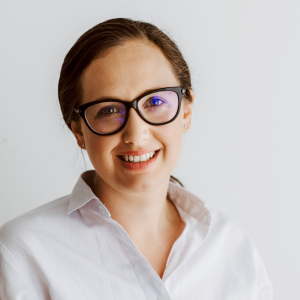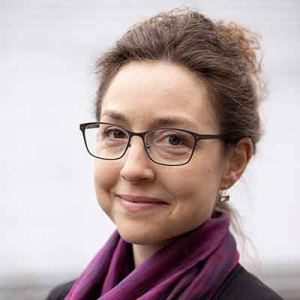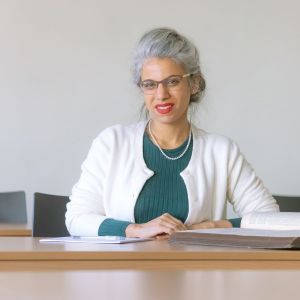FALL 2024– SPRING 2025 SEMINAR DATES AND SPEAKERS
FALL SEMESTER
Lisa Silverman, University of Wisconsin-Milwaukee
- September 7, 2024 3:00 pm Eastern time (Hybrid)
Lisa Silverman, Professor of History and Jewish Studies, discusses a portion of her forthcoming work, The Postwar Antisemite.
Lisa Silverman received a BA in political science from Yale University, an MA in Law and Diplomacy from the Fletcher School of Law and Diplomacy at Tufts University, and a PhD in German Studies from Yale University. In 2022 she served as Michael Hauck Visiting Professor for Interdisciplinary Holocaust Research at the Fritz Bauer Institute for the History and Impact of the Holocaust at the Goethe-Universität in Frankfurt am Main. She specializes in modern German and Austrian Jewish cultural history, with a focus on gender, visual culture, and antisemitism. She is author of Becoming Austrians: Jews and Culture between the World Wars (Oxford, 2012) and co-author with Daniel H. Magilow of Holocaust Representations in History: an Introduction (Bloomsbury, 2015; 2nd ed. 2019). Her next book, The Postwar Antisemite: Culture and Complicity after the Holocaust, is forthcoming with Oxford University Press.
Marcin Wodziński, University of Wrocław
- November 10, 2024; 3:00 pm Eastern time (Hybrid)
Marcin Wodziński is Professor of Jewish history and literature, and head of the Department of Jewish Studies at the University of Wrocław, member of the Polish Academy of Sciences, and member of Academia Europaea. The scope of his academic interests ranges from the social history of Jews in the 19th century to the history of Jews in Silesia and Jewish material culture, especially the history of Hasidism and Haskalah. His publications include more than 100 articles in Polish, English, Hebrew, French, and Czech, nine books authored and two co-authored, and eight volumes co-edited. His publications include: Hebrew Inscriptions in Silesia from the 13th to 18th Centuries (1996); Bibliography on the History of Silesian Jewry II (2004); Haskalah and Hasidism in the Kingdom of Poland (2005); The Polish Kingdom Authority Against Hasidism (2008); Hasidism and Politics (2013)); Hasidism: Key Questions (2018); Historical Atlas of Hasidism (2018). Wodziński is the editor of the Makor / Sources of Academic Series at Austeria Publishing, Bibliotheca Judaica Series at the University of Wrocław Press, and editor-in-chief of the European Journal of Jewish Studies.
Sasha Goldstein-Sabbah, University of Groningen
- December 8, 2024; 3:00 pm Eastern time (Hybrid)
Sasha Goldstein-Sabbah is assistant professor of Middle Eastern Studies at the University of Groningen in The Netherlands, she received her PhD in 2019 from Leiden University. She is specialised in the modern history of Middle Eastern and North African Jewry and her research considers how, disparate Jewish communities interacted with each other through philanthropic, business, and religious networks. She is the author of numerous scholarly and trade publications including her recent monograph Baghdadi Jewish Networks in the Age of Nationalism (Brill, 2021).
SPRING SEMESTER
Paola Tartakoff, Rutgers University
- January 12, 2025; 3:00 pm Eastern time (Hybrid)
Paola Tartakoff is a professor of History and Jewish Studies, and chair of the Department of Jewish Studies, at Rutgers University. She is the author of two books about Jewish-Christian relations in the Middle Ages: Between Christian and Jew: Conversion and Inquisition in the Medieval Crown of Aragon (link opens in a new window/tab)and Conversion, Circumcision, and Ritual Murder in Medieval Europe(link opens in a new window/tab). She has received fellowships from the National Endowment for the Humanities, the Fulbright Foundation, the European Institutes for Advanced Study, the Israel Institute for Advanced Study in Jerusalem, and the Katz Center for Advanced Judaic Studies at the University of Pennsylvania. She is also the recipient of a Rutgers Presidential Fellowship for Teaching Excellence. Professor Tartakoff is a member of the Exploring Hate advisory committee.
Tartakoff studies the social and cultural history of Jews and Christians in medieval and early modern Europe. She is particularly interested in conversion to and from Judaism, the medieval and Spanish inquisitions, and ritual murder accusations. Her first book was based on archival research conducted in Catalonia, Aragon, and Valencia. Her current work explores Western Europe and the Mediterranean more broadly.
Tabea Linhard, Washington University, St. Louis
- March 2, 2025; 3:00 pm Eastern time (Hybrid)
Tabea Linhard is Director of Global Studies and Professor of Spanish and and Comparative Literature.
Professor Linhard’s work centers on experiences of displacement and asylum in the 1930s and 1940s. She has also published on Spanish and Mexican literature and film, Memory Studies, Jewish Studies, and Mediterranean Studies. She is the author of the forthcoming Unexpected Routes: Refugee Writers in Mexico (Stanford UP, 2023), Jewish Spain: A Mediterranean Memory (Stanford UP, 2015) and Fearless Women in the Mexican Revolution and the Spanish Civil War (U of Missouri P, 2005). She co-authored Mapping Migration, Identity, and Space (Palgrave, 2018) and Revisiting Jewish Spain in the Modern Era (Routledge, 2013). Her new book project, Agents’ Secrets, involves the relationship between gender and espionage during the Spanish Civil War, World War II, and the early years of the Cold War. The book will feature research on the lives and times of Hilde Krüger, Margarita Nelken, and Marthe Richards, among others.
Professor Linhard teaches courses on Spanish and Spanish American literature and cultural studies, the Holocaust, and migration. She has recently developed a new core course for the Global Studies major. Her other classes and seminars include “War, Migration, and Human Rights, ” “Storytelling: From Oral Traditions to Radio Ambulante,”“Displacement and Asylum in World Literature,” “The Holocaust in the Sephardic World,” “Migration in the Global World: Stories,” “Colonial Memories, Postcolonial Crossings, and Spanish Cultural Studies,” “All about Spanish Cinema,” “Mediterranean Cultural Studies,” and “Exile, Immigration and Memory in Spain.”
She coordinated the installation of Hostile Terrain 94 @ Washington University in St. Louis, serves as the Ambassador for the University of Chile for WU’s McDonnell International Scholars Academy and is one of the founding members of the Genealogías de Sefarad Research Collective.
Shatzmiller Fellows
- April 6, 2025; 3:00 pm Eastern time (Hybrid)
NCJSS welcomes presentations from the 2024-25 Shatzmiller Fellowship cohort. The Shatzmiller Graduate Fellows honor Emeritus Smart Professor Joseph Shatzmiller, who taught at Duke University from 1994 to 2010. Among his many publications, he is best known for Shylock Reconsidered: Jews, Moneylending, and Medieval Society and Jews, Medicine, and Medieval Society.






